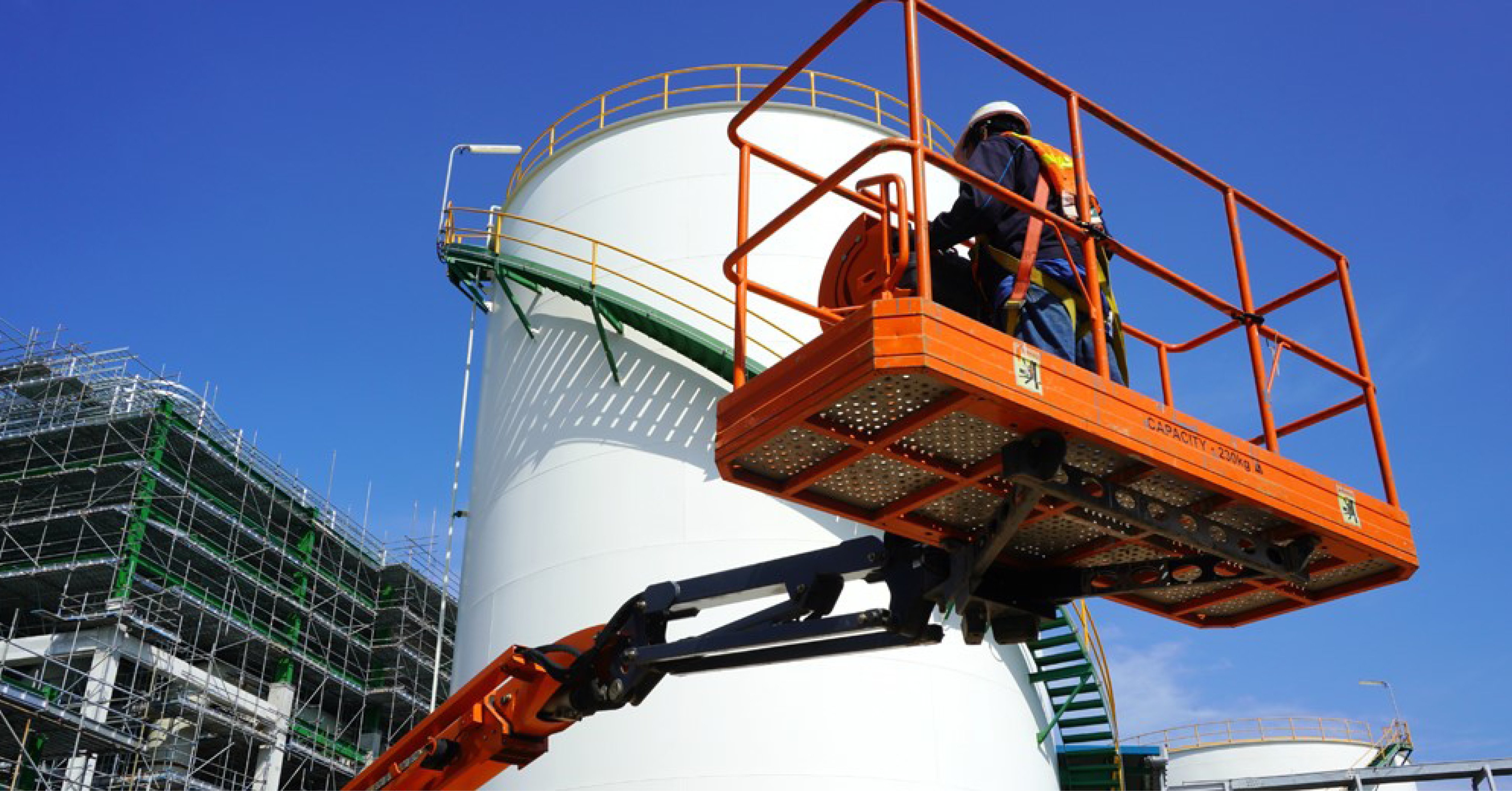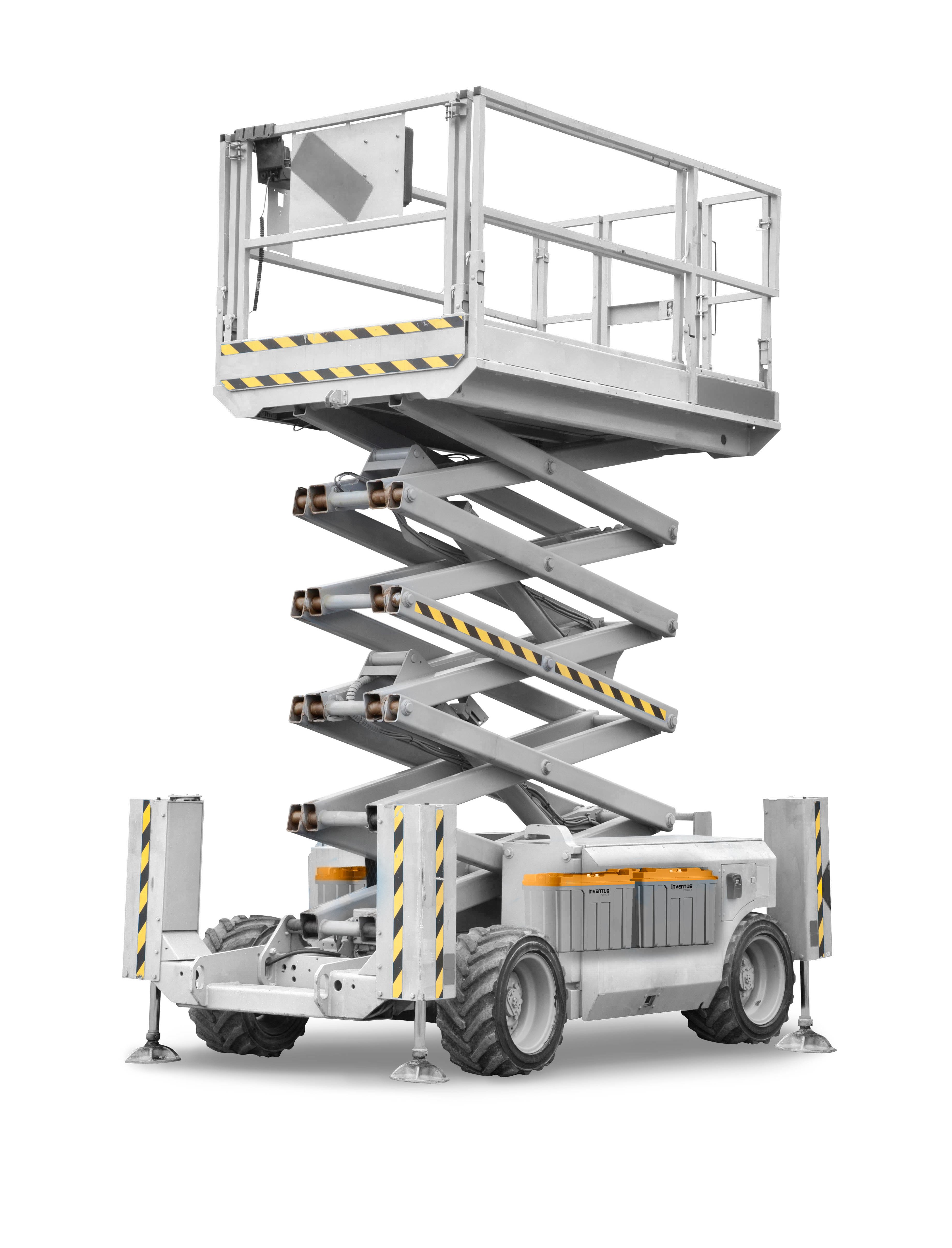Fleet and equipment managers at construction sites and warehouses are continually seeking ways to improve uptime and production efficiency. Advanced power sources from lithium-ion (Li-ion) technology can create new cost-saving opportunities in managing fleets of Aerial Work Platforms (AWP). When paired with a robust battery management system, Li-ion technology helps managers increase worker productivity and machine uptime. In an MHI guest blog, we describe some of the benefits of Li-ion battery technology and why it’s proving to be a viable power source for Aerial Work Platforms.

Maintenance-free
Li-ion battery systems require zero maintenance. Aerial Work Platforms may only be used a few times a month, but with Li-ion technology, there is no need to check the battery or provide any service in between use. With a maintenance-free system, operators will see a notable increase in hours of uptime and productivity, which translates into significant cost savings over the life of the equipment.
Resilience in challenging conditions
Sub-zero climates and scorching hot construction sites challenge even the most robustly designed power source. Li-ion technology can help warehouse managers and construction companies maximize uptime even in the most extreme working conditions. A Li-ion battery designed with a proper battery management system (BMS) can be robust enough to operate in these conditions without shortening battery life.
On days when hours of runtime are required from a scissor lift or a boom lift in extreme temperatures, Li-ion offers performance and long-lasting power for the equipment. A Li-ion battery designed to operate in low-temperature conditions requires an integrated heater to help extend the battery life and performance. The following guidelines should be followed during use in below-freezing temperatures:
- The heater will activate once the battery temperature reaches below freezing.
- Charging will be disabled when the battery temperature is below freezing to prevent any safety concerns.
- Discharging will be disabled when the battery temperature is below -20°C to prevent any safety concerns.
- Once the battery temperature reaches above freezing, the heater will deactivate and allow the battery to resume normal operation.
When designed properly, a typical Li-ion battery may last up to seven years or more. AWP equipment powered by Li-ion batteries may even outlast the duration of the equipment’s lease cycle.
Intelligent technology
As mentioned previously, the battery management system (BMS) is an important aspect of a Li-ion battery. The BMS provides the technology to maintain safe levels of voltage, current, and temperature. But it can also share real-time data on battery performance and state of health (SOH).
- A BMS that integrates with a telematics system brings intelligence and precision to the workday. Insights shared by the BMS let managers plan the day more strategically, better analyze performance, and respond quickly to developments. Not only that, but BMS intelligence keeps the system charged, preventing unplanned downtime during the shift.
- Other smart features in Li-ion technology enhance worker safety. An accurate and easy-to-read SOH alerts workers and managers when battery health is low, so they can get the machine to a charger in time.
- Enhanced BMS intelligence can return an AWP to a safe position before the battery depletes and cuts off power. For example, this prevents workers from being stranded mid-task, on an elevated platform.
- Time-out features power down the machine after extended idle time, preserving the power needed to finish the task.
Verified performance
It is important to point out that not all battery management systems are the same. When choosing a Li-ion battery, one should understand the full capabilities of the BMS to ensure that the battery will remain safe and perform as intended for the application and environment. A complete, cohesive system is the best way to achieve performance and safety standards.
If you opt for Li-ion technology, request data and results through independent testing that validates the technology and design. It will be critical to get proof of the BMS’s reliability in an industrial environment.
For example, the Hird Test places a fully charged machine through a series of operational cycles until battery power depletes. Hird Test performance and data will reveal much about the battery’s ruggedness and endurance in challenging environments.
A series of highly accelerated life tests known as HALT can confirm that a Li-ion technology meets the life cycle requirements you require for real-world endurance from an AWP.

Saving costs and improving uptime
Over the life of the battery, Li-ion technology presents an attractive power solution for AWP equipment to improve efficiency. It is a long-lasting, maintenance-free, intelligent, and robust power source that can solve productivity concerns in warehouses and on construction sites.
If you’re interested in learning more about Inventus Power’s batteries for powering Aerial Work Platforms, contact us today!